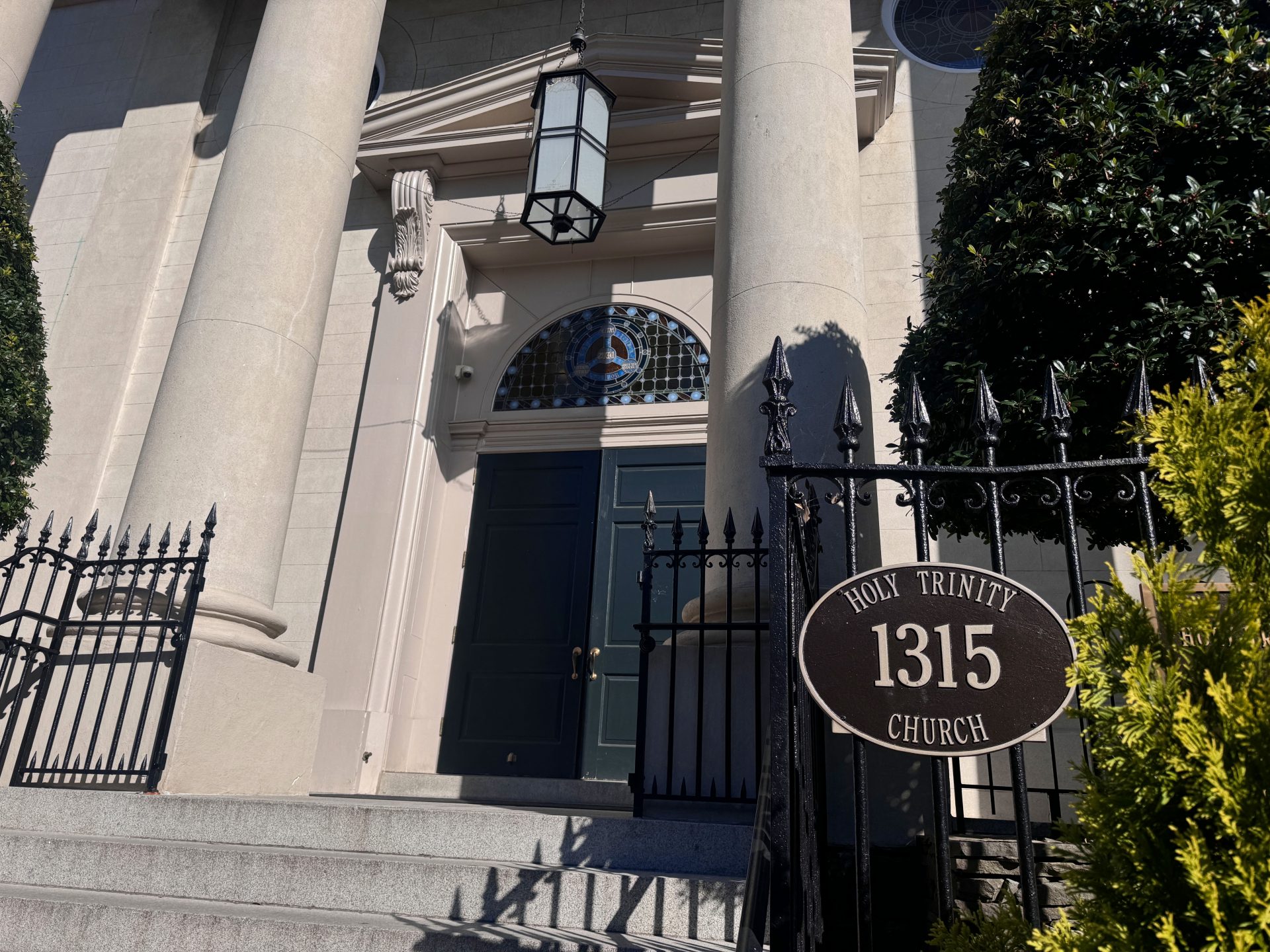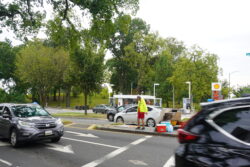Editor’s Note: This piece is published as part of The Homeless Crisis Reporting Project (HCRP), launched by Street Sense Media in 2016. HCRP is a multi-day collaborative effort between local D.C. outlets to spotlight homelessness and related issues in the District. Check out all the 2024 HCRP stories here.
Every Sunday evening, the Holy Trinity Catholic Church in Georgetown opens its doors to people experiencing homelessness for a family-style dinner.
Washington, D.C. has one of the highest rates of homelessness compared to other states in the country. The point-in-time (PIT) count conducted on a single night each January showed that 9,774 people in the region’s eight wards were either living on the street or in a temporary shelter.
2024 is the second consecutive year that the District saw an increase in homelessness. The issue is compounded by fewer investments in housing and other social services and the city’s move to close major encampments in May.
The Holy Trinity is one among the network of institutions around Georgetown that have stepped in to help. It began serving hot meals from its stoop at the beginning of the COVID-19 pandemic.
When neighbors complained about people lining up on the sidewalk, the church welcomed them into the Holy Trinity School building. The service quickly outgrew the cafeteria and now hosts its eighty-some guests in the gym.
“How are we? Avis,” said volunteer Catherine, handing out a water cup to a man with plastic bags slung over his shoulder. “Come in right through here.”
Donned in a bright yellow vest, Catherine waved the guests through the sidewalk traffic and passed out neon pink cards with numbers indicating different meal times.
“Catherine just remembers everyone’s name. She has all the charm,” Bob Blancato, her fellow volunteer manning the door, said. “We usually get 70% of the same people, so much so that we start to worry if someone doesn’t show up,”
The volunteers hand out numbers to the queue at 4:30 p.m., and dinner begins at 5:00 p.m. after a quick prayer. Against the ambient music, the guests clapped and wooed as volunteers introduced themselves and the menu of the night.
“Ice cream is usually a big hit,” Mike Conway, director of the Sunday Supper, said as he flattened empty Trader Joe’s cartons.
“There were some discussions about providing ice cream because of diabetic concerns. But this is like a Thanksgiving feast for most people here, and why should we deny them ice cream?”
The parishioners bring in homemade food that ranges from fresh fruits, salads to mashed potatoes and various pasta dishes. As volunteers call out numbers over the speaker, the guests line up to fix their plates from a buffet-style counter.
Indeed, these dinners are among the rare times when guests like Bruce have access to a nourishing, hearty meal. The church has found itself feeding multitudes who never thought they would ask for help.
For most of his life, Bruce has made a living working at local stores and in the party planning business. However, the pandemic inflation has sapped Bruce of his life savings. He now struggles to keep up with rising food costs as he nears his 70s.
“People keep obsessing over diet and calories. But we forget that our bodies and brains can’t function without food,” Bruce said.“I learned it the hard way.”
Conway said that the church has long encouraged its members to practice tangible expressions of compassion. In 2023, the Holy Trinity Migrant Team helped 23 people from 11 countries to strengthen their English-speaking skills and secure additional job training.
“We are a very active parish committed to social justice and to our local community,” Jennifer Wilson, a Holy Trinity parishioner, said. “This is our neighborhood. They are our neighbors.”
Aside from providing wholesome food and conversations, the volunteers sought to forge personal connections and support guests whose lives are often fraught with uncertainties.
Wilson grew close with a guest who happens to be the most well-read person she knows. He checks in on what she is reading every Sunday and eggs her on when she slacks off or dwells on a book for too long.
“Some people are very open and want to talk, and other people are more private,” Wilson said. “But over time, I’ve gotten to know a lot of people, and I certainly have people that are very dear to me.”
The church has also found new ways to augment the meal program. Earlier this spring, Conway implemented a recycling initiative. Most of the utensils are now compostable and made with sustainable materials.
Antonella Gage, who joined the parish last year, started bringing in cakes at the beginning of each month to celebrate the guests’ birthdays. She believes that the spirit of generosity should go beyond providing basic necessities for those in need.
“A lot of our guests feel like nobody acknowledges them, like we see right through them,” said Gage. “I just want them to feel seen and heard.”





